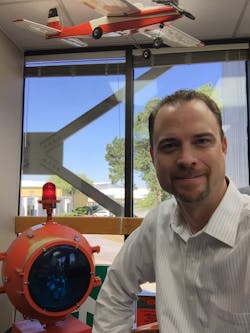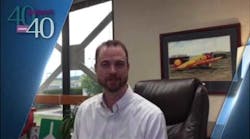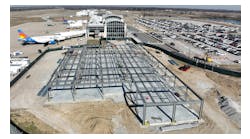James D. Stephens
Age: 37
Executive Director
South Carolina Aeronautics Commission
- Alma Mater Bob Jones University
- Something may not know about me: I was in a plane crash in 2004
- Favorite book: The Bible
- Favorite TV show: American Pickers
- Favorite movie: The Bourne Series
- Favorite hobby(s): Motorcycles, bartering
When James Stephens was in sixth grade, his class took a tour of Jim Hamilton LB Owens Airport (CUB) in Columbia, S.C. where he suddenly got a spark for aviation. He got to go up in a plane a few times and was hooked. By the time he graduated high school, Stephens was already flying.
He went to college to study as a youth ministry major, but while there, Stephens said he started to pray about where he needed to go and what he needed to study. He then decided to sit out his second semester of his freshman year and opted to go back and pursue an aviation career.
“Like most kids, I thought, OK, I can be a pilot, I can be air traffic control, I can be a mechanic and that’s pretty much what a student will think of when they think of aviation,” he said. “But there’s a whole other world of things out there and I’d like to see South Carolina create a mentor program that comes from businesses, that comes from airports, that comes from pilots and then we’re able to have this network of people who are available to help mentor, to help coach, to help guide those who are interested in an aviation career.”
Stephens was working as an aircraft mechanic at Greenville Downtown Airport (GMU) when a pilot came in with engine problems. He talked with the man and that conversation led to Stephens becoming manager of Warren County Memorial Airport (RNC) in McMinnville, Tenn.
He came back to South Carolina to work for a private aviation company before joining the South Carolina Aeronautics Commission as a program manager.
Known by colleagues for his passion, Stephens led the agency in launching an aviation summer camp for outstanding high school students in partnership with Clemson University and the Celebrate Freedom Foundation.
He’s also engaged in South Carolina's aviation manufacturing industry, including the University of South Carolina, to continue fostering and promoting aviation education.
At the commission, Stephens has led it through a time of declining revenues from state aviation fuel taxes by taking a hard look at the agency’s finances and capital grant program procedures to ensure South Carolina’s airports and other stakeholders understand the agency’s prioritization of resources.
Stephens is involved in several industry groups, including the South Carolina Aviation Association and the National Association of State Aviation Organizations (NASAO). He has gotten involved with NASAO's legislative affairs and education efforts.
He also sits on an ACRP panel for an aviation education research project.
Stephens allowed staff to engage in projects such as obtaining a UAV for state airport inspection and obstruction mapping purposes, development of a NASAO-award-winning collaborative land use mapping evaluation tool and sponsoring TRB's triennial National Aviation System Planning Symposium in Charleston, S.C., in 2015.







